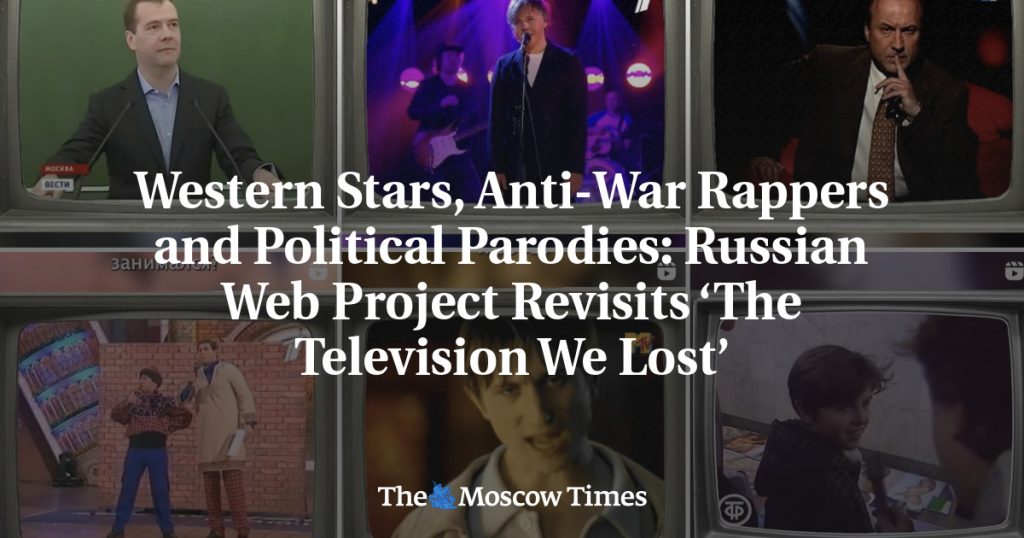A Chto Po TV is a project aiming to revive the relative freedoms of pre-war Russian television by posting short, catchy clips of television broadcasts from the 1990s, 2000s, and 2010s. The project, with almost 270,000 Instagram followers, showcases a different era of Russian television where political satire, interviews with Ukrainian politicians, and appearances by Western celebrities were common. The creator of the project, Alexander, wants to highlight the stark contrast between the television of the past and the current state-controlled propaganda that dominates Russian media.
In recent years, Russian state television has been used as a tool for pushing the Kremlin’s narrative of Russian nationalism, anti-Western sentiments, and “traditional values.” Since the invasion of Ukraine, the state-run TV channels have justified the war and demonized Ukrainian President Zelensky and his government. A Chto Po TV presents a glimpse into a different time when figures like journalist Anna Politkovskaya, playwright Svetlana Petriychuk, and musician Ilya Lagutenko were not censored or blacklisted for their anti-war views, as they are today.
The project offers clips of old interviews with politicians, anti-war artists, singers, cartoons, films, and advertisements from the past few decades, providing a stark contrast to the current state of Russian media. Alexander, the project creator who started this initiative from Georgia after leaving Russia post-invasion, aims to remind viewers of the lost freedom of expression and diversity in Russian television. With over 130 media outlets blocked and independent reporting outlawed in Russia, A Chto Po TV serves as a nostalgic look back at a time when independent voices were not censored or silenced.
Television remains the primary source of information for a majority of Russians, particularly among older age groups. State-run channels like Channel One continue to promote the government’s narrative regarding the war in Ukraine, with hosts like Dmitry Kiselyov openly discussing nuclear threats and Russian troops’ advances on the front lines. The project’s videos evoke nostalgia and longing for a time when Russian television was more diverse and allowed for politically independent voices to be heard, as seen in comments from followers expressing a desire for a return to a more carefree era without the current horrors.
The project creator, Alexander, draws inspiration from British filmmaker Adam Curtis’ documentaries made from archival footage and uses his expertise as a spectator to run A Chto Po TV. The project serves as a reminder of the lost freedoms of pre-war Russian television, prompting viewers to reflect on how and why the current media landscape has changed. The project highlights the significance of independent journalism and the importance of supporting open, unbiased reporting in the face of increasing censorship and propaganda in Russian media.
As an independent news source, The Moscow Times has faced challenges and restrictions imposed by the Russian government, leading to a branding as a “foreign agent.” The journalists at The Moscow Times are committed to providing accurate and unbiased reporting on Russia despite these challenges. To continue their critical mission, they rely on the support of readers who value open and independent journalism. By supporting initiatives like A Chto Po TV and news sources like The Moscow Times, individuals can make a significant impact in promoting freedom of expression and media diversity in Russia.


